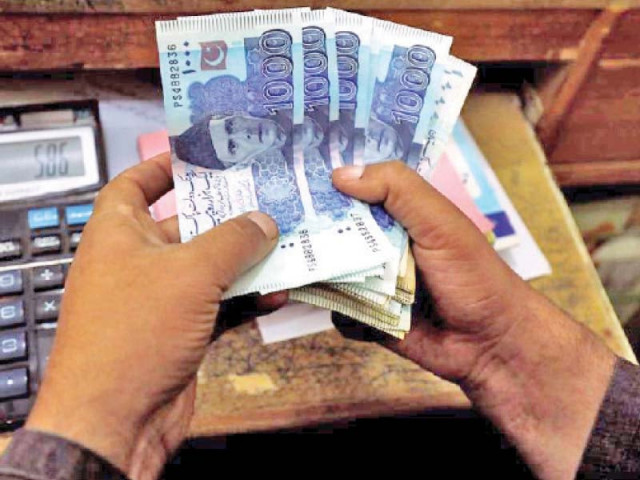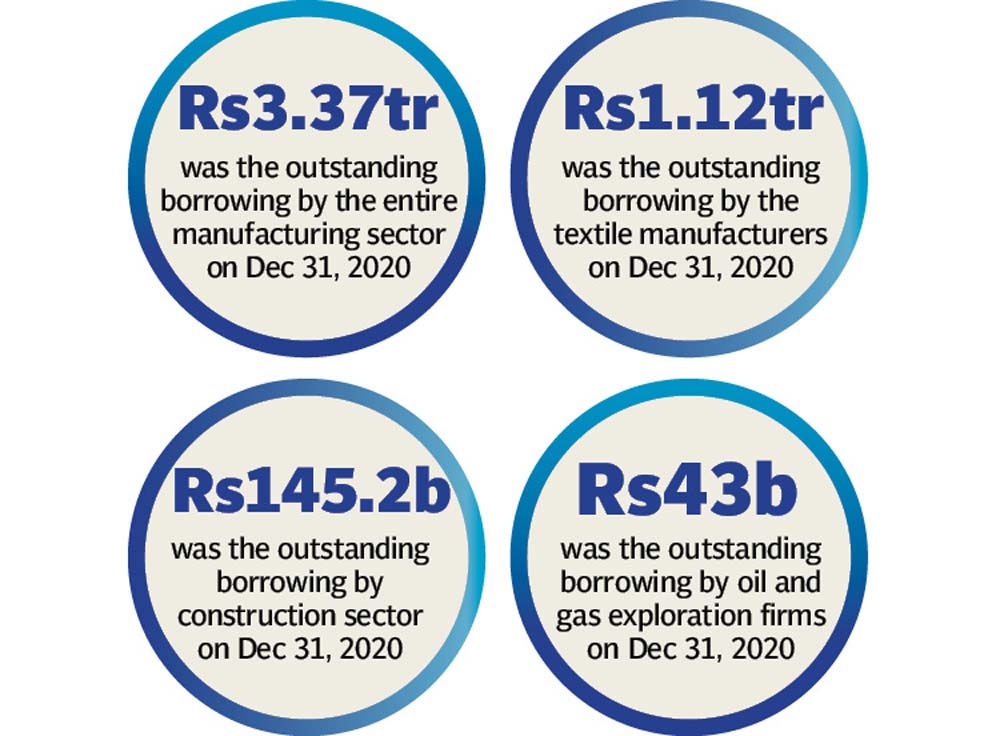Private sector borrowing surges
Rise comes on back of revival in investors confidence, improving economic activity

Borrowings from banks by private businesses is on the rise again, suggesting a gradual revival of confidence in doing businesses by local investors and pickup in economic activities, as Covid-19 cases are declining in the country.
The businesses in the private sector have borrowed a net Rs315 billion in the first seven months (July 1, 2020 to February 5, 2021) of the current fiscal year. This is more than double the amount of Rs151 billion borrowed during the same period of the last fiscal year, the State Bank of Pakistan (SBP) reported earlier this week.
“The pickup in economic activities since reopening of businesses from lockdown and availability of concessionary financing under Temporary Economic Refinance Facility (TERF) for expansion and setting up new projects allowed local investors to make comparatively higher borrowing in recent months,” Topline Securities Director Research Syed Atif Zafar said while talking to The Express Tribune.
For example, a large number of textile manufacturers and exporters are working at overstretched capacity for the past several months. Many of them have opted or decided to initiate expansion in their production capacity since they are fully booked for the next four to five months.
“They need to increase their production capacity to receive larger orders from world buyers, going forward,” he said.

Similarly, a huge pickup in demand for cars, emergence of a couple of new entrants into the four-wheeler production and marketing segment, and surge in demand for fertiliser, cement, steel, energy (oil and gas) and food products may partially be met through bank borrowing by businesses.
AHL Research Head Tahir Abbas said that the SBP’s response to Covid-19 through the introduction of TERF and cheaper loans for business to pay salaries during the pandemic and deferment and rescheduling of loans for one-year for businesses and individuals; all were meant for supporting economic activities in the country.
“Accordingly, the central bank has achieved its target of supporting economic activities during tough times of the pandemic. The success of the financing schemes is reflecting in the face of growth in credit to the private sector,” he said.
Besides, a notable cut of 625 basis points in the benchmark interest rate during March-June 2020 to 7% has also helped businesses and households cope with the pandemic and allowed manufacturers to increase their production capacity, Abbas said.
The manufacturing, agriculture and services sectors also increased borrowing through the SBP’s concessionary financing available through the Export Finance Scheme (EFS) and Long-Term Financing Facility.
The production by large-scale manufacturing (LSM) industries including automobile, petroleum product, food and beverages, fertiliser and pharmaceutical has increased to a 22-month high in December 2020.
“The LSMI (large-scale manufacturing index) output increased by 11.4% in December 2020 compared to December 2019,” the Pakistan Bureau of Statistics (PBS) reported last week.
The breakdown suggests the outstanding borrowing by the entire manufacturing sector surged to Rs3.37 trillion on December 31, 2020 compared to Rs3.25 trillion a year ago on December 31, 2019, according to the central bank.
The outstanding borrowing by the textile manufacturers alone increased to Rs1.12 trillion by end-December 2020 compared to Rs1.03 trillion by end-December 2019.
The outstanding borrowing by the manufacturer of basic pharmaceutical products and pharmaceutical preparations surged to Rs98.5 billion by end-December compared to Rs60.4 billion at this time last year.
The outstanding personal loan eg for housing and cars increased to Rs783 billion in December contrary to Rs700 billion in the same month of the last year. The borrowing by the information and communication sector surged to Rs167.6 billion compared to Rs145 billion.
The outstanding borrowing by the construction sector surged to Rs145.2 billion compared to Rs127.6 billion. The borrowing by oil and gas exploration firms increased to Rs43 billion on December 31, 2020, compared to Rs35.6 billion on December 31, 2019.
The industries which retired the previous borrowing instead of taking new ones included manufacturers of chemical and chemical products, manufacturers of rubber and plastic, manufacturers of electrical equipment and machinery and equipment.
Published in The Express Tribune, February 21st, 2021.
Like Business on Facebook, follow @TribuneBiz on Twitter to stay informed and join in the conversation.



















COMMENTS
Comments are moderated and generally will be posted if they are on-topic and not abusive.
For more information, please see our Comments FAQ